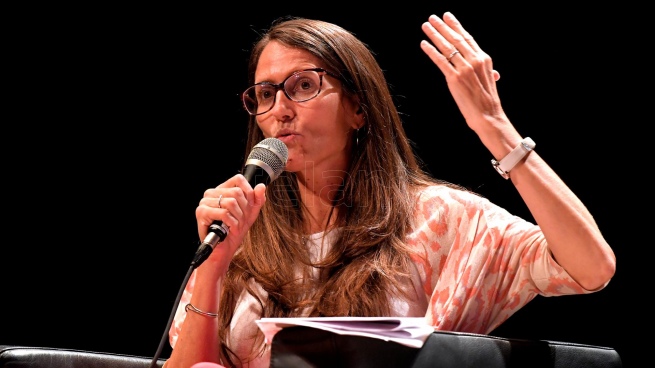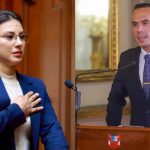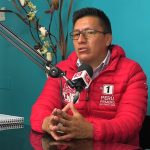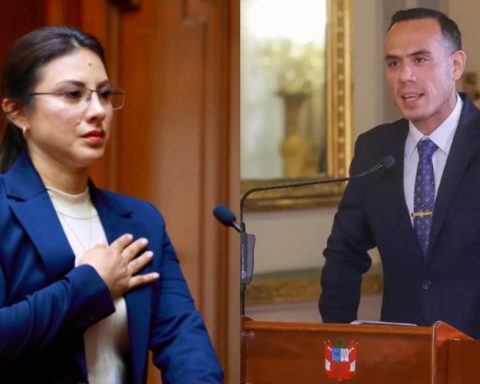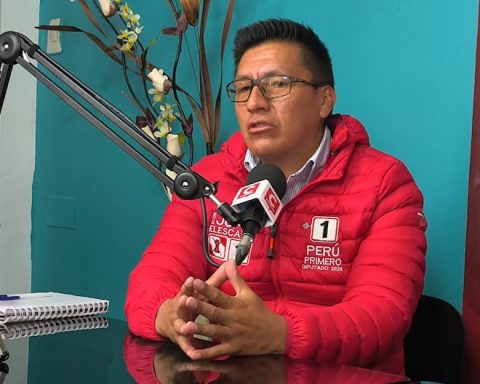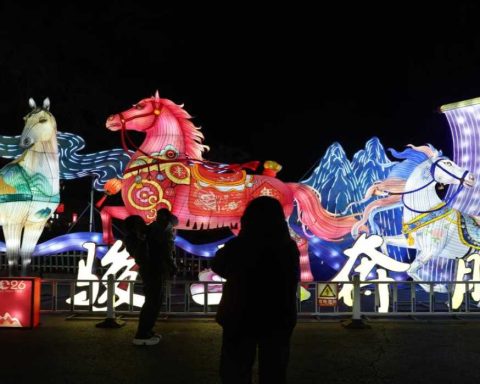The Minister of Women, Gender and Diversity, Elizabeth Gómez Alcorta, affirmed that “women” have “a lot to contribute from feminisms” to build a “transforming project”, leading a discussion that included the participation of officials from Ibero-American countries that took place at the Kirchner Cultural Center and that had the virtual presence of the former president of Brazil, Dilma Rousseff.
The panel “We move the world towards equality” took place in the Argentine Room of the CCK, where Gómez Alcorta was accompanied in person by the former Vice Minister of Foreign Affairs of the Dominican Republic, Minou Távarez Mirabal, daughter of Minerva Mirabal, murdered and tortured during the regime of Rafael Trujillo, and whose martyrdom, which occurred on November 25, 1960, in that Caribbean country, gave rise to the commemoration of the Day of Non-Violence towards Women.
This dissertation was joined by Rousseff, the Minister of Equality of the Government of Spain, Irene Moreno, and the future head of the portfolio of Women and Gender Equity of Chile, Antonia Orellana.
“We have good experiences of organization (in Latin America) and popular organization is the basis of a transformative project. We also know that we have a lot to contribute from feminisms, but not just any woman, but women who want to transform,” said Gómez Alcorta on the panel. It started minutes after 6 p.m.
The minister pointed to misogyny as a “political disciplining tool” and gave the examples of the murdered activists in Honduras and Brazil, Berta Cáceres and Marielle Franco, respectively, and named “the same Dilma and Cristina Fernández de Kirchner” in allusion to legal cases related to “lawfare”, to the applause of the public.

“I want to bring the case of Milagro Sala (the social leader from Jujuy who has been detained for six years without a final sentence) who continues to be a political prisoner,” stressed the official who defended the leader of the Tupac Amaru group.
Meanwhile, Rousseff explained that Latin American neoliberalism has as “characteristic the immense contempt of local elites for the whole of the people” and pointed out that in Brazil the one who receives this violence “is a woman, she is black and she is a child (girl).”
He also referred to “lawfare” as the “enemy’s history of justice to destroy his adversary” and pointed out that for former president Luiz Inácio Lula da Silva that expression “had a class component” due to his working-class background and that the former president of Bolivia Evo Morales also suffered persecution “for being indigenous.”

Lastly, she referred to the role of women, emphasizing that they supported her, while acknowledging that they are the ones who “are on the front line in opposition to (Brazilian President Jair) Bolsonaro” and those who “faced the pandemic in the front line”, and maintained that “black and indigenous women are the main victims”.
For her part, the Spanish minister stressed that the pandemic made it visible that “care tasks are essential”, since without them “the economy would not be sustained” while she stressed that “they are carried out by women and are unpaid”.
Along the same lines, Orellana warned that “the way out of the crisis” left by the coronavirus emergency should not “replicate the existing situation” because “women were not contemplated by the Welfare State because there were no policies that included the tasks of care as a central axis”.

Meanwhile, Távarez Mirabal wondered “what is the point of occupying a position of power and ending up spearheading the rich” and considered that women make up “the most revolutionary sector of society.”
Then Rousseff took the floor again and stated that “there is a characteristic of ours that is to fight.”
“The resistance of women always means a greater force opposed to the force of machismo, misogyny and homophobia,” pointed out the former Brazilian president, applauded by the audience.
